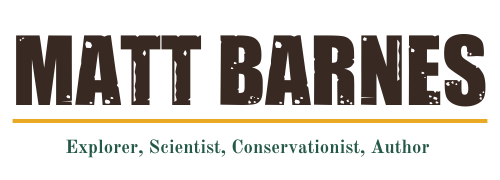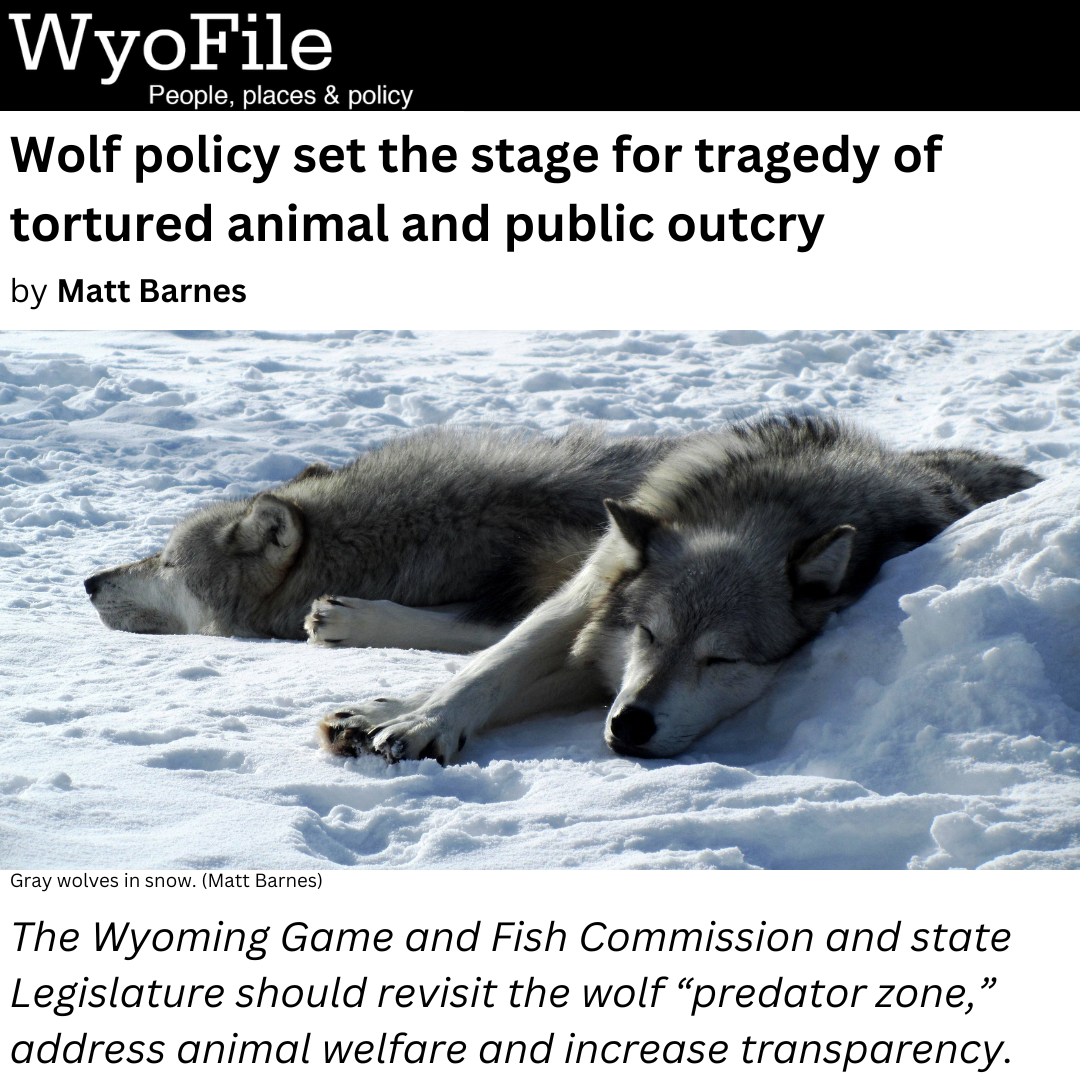The Wyoming Game and Fish Commission and state Legislature should revisit the “predator zone,” address animal welfare and increase transparency
2024/4/17 | Wyoming: Fremont Co.
The Wyoming Game and Fish Commission and state Legislature should revisit the “predator zone,” address animal welfare and increase transparency
Comment to the Wyoming Game and Fish Commission
By Matt Barnes
I testified to the Wyoming Game and Fish Commission, in the wake of the incident in which a man ran over a wolf and showed off the dying animal at the Green River Bar in Sublette Co.—and was cited only for possessing the animal while it was still alive (a mere $250 fine), and the Commission’s statement in response to the public outcry. Along with nearly fifty other conservationists (given two minutes apiece), I spoke about how the Commission should work with the state Legislature to revisit the Predatory Animal Management Area or “predator zone,” extend animal cruelty laws to wildlife, and increase transparency.
Good afternoon, Commissioners. I work for the Northern Rockies Conservation Cooperative, a non-profit that has worked in Wyoming since 1987 for the common good of people and wildlife.
The Wyomingites I’ve worked with, mostly hunters and ranchers, generally don’t kill wolves except to reduce livestock conflicts, and most wouldn’t condone running them down on snowmobiles.
The last time I stopped at Daniel’s finest establishment—now notorious—I was paddling the length of the Green River, investigating corridors by which wolves, wolverines, or grizzlies might reoccupy suitable habitat to the south. The conclusion was clear: absent persecution by people, it could happen, but the state’s policies are designed to restrict large carnivores to Greater Yellowstone.
It is important for Wyoming to consider its policies for wolves and grizzlies within the context of nationwide recovery.
The predator zone, and the anything-goes killing of wolves that it engenders, have effectively prevented nationwide recovery, and thus delisting.
The Fish and Wildlife Service will finally develop a recovery plan for the gray wolf, at the scale of its historic range in the Western US. That plan will consider suitable habitat throughout the Rockies. It may question whether adequate regulatory mechanisms exist in 85% of Wyoming, or the drawing of the DPS boundary so far south of Greater Yellowstone.
I submit that an adequate regulatory mechanism would take a live-and-let-live approach, incentivize conflict reduction, and retain lethal control as a backstop to address repeated conflicts. The recent outrage suggests that many people would agree with such a change in policy.
Wyoming, the first state in the nation to extend voting rights to women, could extend the right not to be run down on snowmobiles to all wildlife. And to the species that so reminds us of ourselves, on to which we project so much human meaning, the Equality State could extend the right not to be killed simply for being a wolf.
The Green River Bar in Daniel, Wyoming, where I stopped while paddling the length of the Green River, investigating potential wildlife corridors from the Northern to the Central and Southern Rockies in 2021. This is within Wyoming’s “predator zone,” and in February 2024, it was the site of the alleged abuse and ignominious death of a 9-month-old wolf.
4/18: A full-length version of my comment was published in WyoFile the following day. Wolf policy set the stage for tragedy of tortured animal and public outcry.


